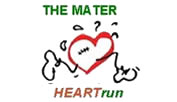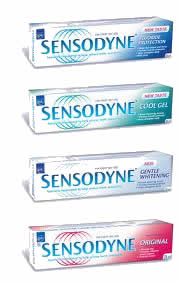BLOOD PRESSURE CONTROL IN A POPULATION WHERE ANTIHYPERTENSIVES ARE GIVEN FREE
Abstract
ABSTRACT
Background: Analysis of blood pressure control has shown that optimal blood pressure
control is generally low in many studies. Poor adherence to therapeutic plans and noncompliance
are perhaps the most important factors responsible for poor control. In most
cases poverty has been adduced to be responsible for non-compliance especially in the
sub-Saharan Africa. Assessment of blood pressure control in situations where
antihypertensives are given free is necessary.
Objectives: To assess blood pressure control in a population where antihypertensives
are given free.
Setting: International institute for tropical Agriculture (IITA).
Design: Cross-sectional study.
Subjects: One hundred and forty three consecutive hypertensive subjects (106 males and
37 females) being followed-up in the medical clinic of the International Institute for
Tropical Agriculture (IITA) for variable numbers of years were studied. Blood pressure
was considered to be well controlled if it was less than 140/90 mmHg and uncontrolled
if higher than 140/90mmHg.
Results: About 51(36%) of the subjects may be described as being fully controlled on
the treatment instituted while 54(38%) of the subjects were not controlled at all. In
about 18% of the patients, the systolic blood pressure alone was controlled while in
8% the diastolic blood pressure alone was controlled.
Main Outcome measures: Level of blood pressure control in this study is poor suggesting
that availability of free drug alone is not enough to improve adherence to antihypertensives.
Conclusion: The percentage of hypertensive patients with optimal blood pressure control
in this population is low, although this was higher when compared to a report from
a similar study where drugs were not given free to patients. Physicians managing
hypertension in such establishments should pay attention to adequate dosing and
appropriate combination of drugs.
Background: Analysis of blood pressure control has shown that optimal blood pressure
control is generally low in many studies. Poor adherence to therapeutic plans and noncompliance
are perhaps the most important factors responsible for poor control. In most
cases poverty has been adduced to be responsible for non-compliance especially in the
sub-Saharan Africa. Assessment of blood pressure control in situations where
antihypertensives are given free is necessary.
Objectives: To assess blood pressure control in a population where antihypertensives
are given free.
Setting: International institute for tropical Agriculture (IITA).
Design: Cross-sectional study.
Subjects: One hundred and forty three consecutive hypertensive subjects (106 males and
37 females) being followed-up in the medical clinic of the International Institute for
Tropical Agriculture (IITA) for variable numbers of years were studied. Blood pressure
was considered to be well controlled if it was less than 140/90 mmHg and uncontrolled
if higher than 140/90mmHg.
Results: About 51(36%) of the subjects may be described as being fully controlled on
the treatment instituted while 54(38%) of the subjects were not controlled at all. In
about 18% of the patients, the systolic blood pressure alone was controlled while in
8% the diastolic blood pressure alone was controlled.
Main Outcome measures: Level of blood pressure control in this study is poor suggesting
that availability of free drug alone is not enough to improve adherence to antihypertensives.
Conclusion: The percentage of hypertensive patients with optimal blood pressure control
in this population is low, although this was higher when compared to a report from
a similar study where drugs were not given free to patients. Physicians managing
hypertension in such establishments should pay attention to adequate dosing and
appropriate combination of drugs.
Refbacks
- There are currently no refbacks.


